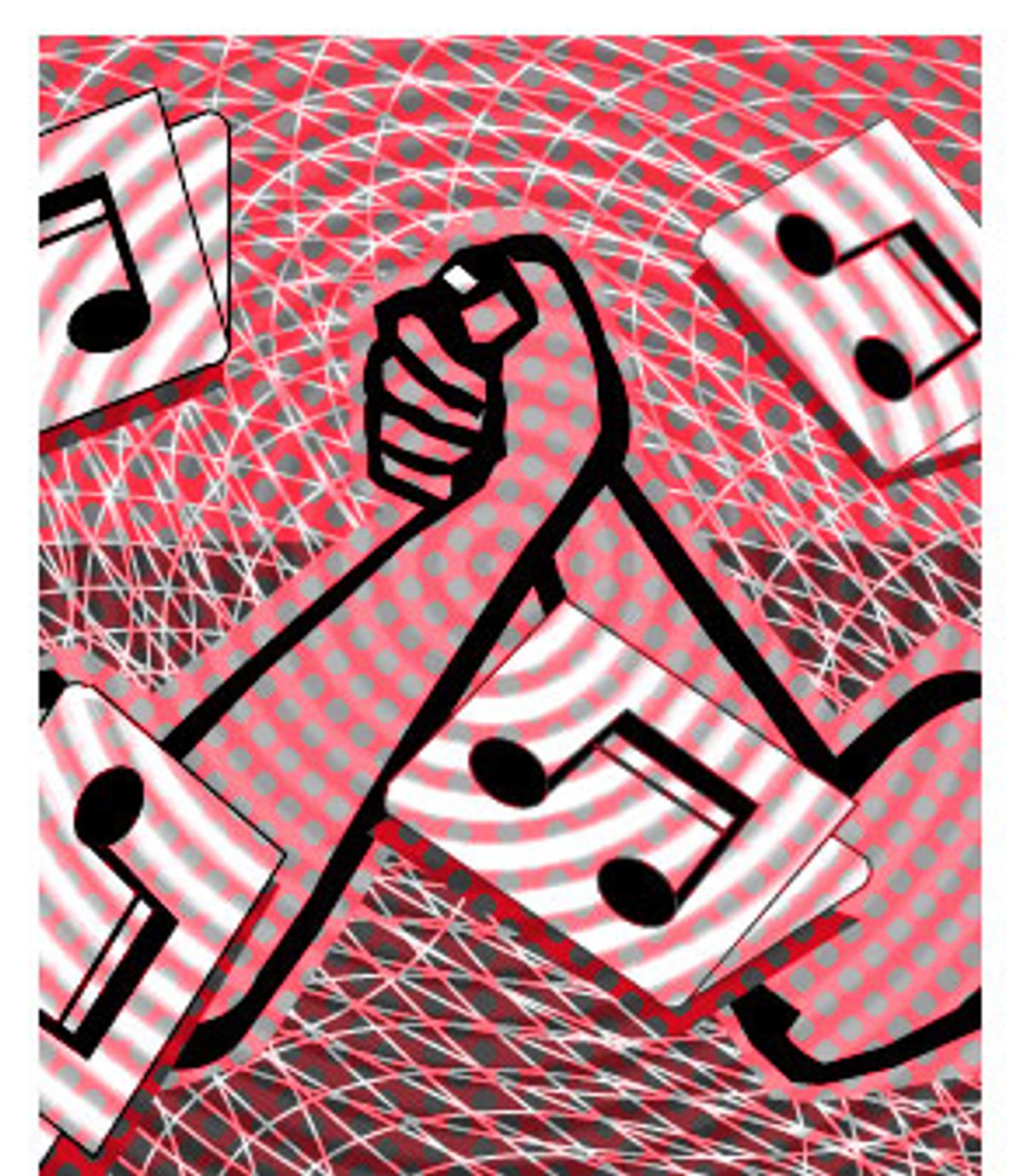The Recording Industry Association of America (RIAA) has finally launched its campaign of lawsuits against the 60 million Americans who file-share. And already, we've seen the first casualties -- a 12-year-old girl and her mother in New York must pay $2,000 they don't have in a hastened settlement; a 71-year-old grandfather in Texas has to hire a lawyer to defend himself and his grandkids; a single mother in Colorado searches for legal advice she can't afford. These are the horror stories of the current copyright wars.
It doesn't have to be this way. There are alternatives. That's why EFF launched the Let the Music Play Campaign, to create a showcase for reasonable solutions that don't involve endless lawsuits. None of them is perfect; all of them have flaws and drawbacks. But all of them are preferable to thousands of lawsuits against individual American families. A good solution will get artists paid, while protecting the privacy and free-speech rights of fans.
Some critics worry that changes made in the copyright law for music may be detrimental to changes in the copyright law for software, books and other copyrighted works. This is a perfectly legitimate concern and has been addressed in several of the plans on our site. For example, the "voluntary collective licensing" plan is specific to the music industry and does not apply to software or other copyrighted works. Just as ASCAP and BMI collect blanket licensing fees from radio stations today, so could similar organizations collect fees from P2P users for file-sharing music. No other copyright owners would be affected by such a plan.
Another solution might be compulsory licensing -- Congress could step in and force the record labels to accept file sharing in exchange for reasonable compensation from file sharers. This is what happened with webcasting. It is also how cable companies and satellite companies pay for TV programming. These historical solutions have only affected specific industries; there is no reason that we cannot limit the P2P solution as well.
Copyright law has always been a patchwork quilt, treating different works in different ways. For example, there is a specific compulsory license for making a cover song. If you want to record your own version of Bob Dylan's "Like a Rolling Stone," you don't have to get Bob's permission. A specific section of the copyright law allows you to simply go ahead and record and sell your version -- as long as, in return, you pay Bob eight cents for every copy you sell. This special exception doesn't affect any other copyright holders, just songwriters. Of course, if other industries such as the book, movie or software industry like this idea, they could adopt it as well. That's the beauty of having reasonable alternatives. Everything is on the table; consumers and content owners can negotiate via the marketplace and Congress to ensure the best plan is worked out.
Privacy and free speech are certainly considerations that we must take into account with any proposed solution. But consider the ways in which the current copyright system is already costing us privacy. Under the Digital Millennium Copyright Act (DMCA), any copyright owner can issue a "secret" subpoena to your ISP and force them to reveal your name, address, e-mail, and personally identifying information simply on the basis of a "good-faith belief" that you are infringing one of their copyrights; they don't even have to file a lawsuit or go before a judge for approval. It is true that on the Internet we are all copyright owners. Every e-mail, every Web page, every comment post is copyrighted. While government surveillance today is as scary as ever, we must also protect ourselves and our privacy against reckless copyright owners who wish to snoop on our activities as well. A system that legalizes file sharing also immunizes file sharers against DMCA subpoenas, since copyright owners would no longer have any basis to obtain file-sharer names. Given that the RIAA has issued more than 1,500 such subpoenas in the last two months alone, this would create a tangible and concrete protection of privacy.
Critics also worry about government involvement in the P2P solution. While a P2P compulsory licensing solution may require congressional involvement to change the copyright law, there is no reason to assume that the government needs to be involved in collecting or distributing any funds collected from file sharers. Much like ASCAP and BMI, private organizations can manage the job of distributing money to artists. Private companies like those that assemble the Nielsen ratings can take care of sampling who is listening to what music. And while aggregate sampling may require some access to what we listen to, there is no reason that it cannot be done anonymously and voluntarily.
Again, these are all principles that we can forcefully advocate during congressional hearings or discussions with artists. The big picture, however, is that right now, today, hundreds and potentially thousands of individual music lovers face lawsuits that may bankrupt their families and invade our privacy, technology companies face legal actions that chill innovation, and there is no clear end in sight. We cannot bury our collective head in the sand and hope that everything works out. We must consider reasonable alternatives that make file sharing legal and pay artists. To ignore these options leaves the future of music and the future of digital media technology almost entirely in the hands of organizations like the RIAA and out of the hands of consumers and innovators. Meanwhile, all of us, whether we file-share or not, are paying a price, perhaps not in terms of dollars and cents, but certainly in terms of privacy and innovation.



Shares